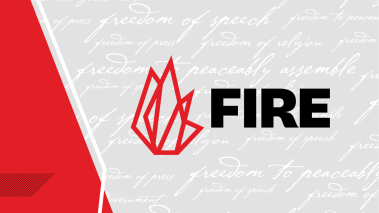Table of Contents
A Note About Free Speech

Most citizens respect disagreement and difference, and they do not raise charges of harassment and crime against those whose opinions and expressions "offend" them. Our society, however, beginning with our universities (that need to be the most open havens of free speech) increasingly encourages such charges. On our campuses, and, more and more, throughout our society, members of "historically oppressed groups" — above all, women, blacks, gays, and Hispanics — are taught they have a "right" not to be offended, as if these individuals were not capable of living with freedom and the values of the Bill of Rights. Those who have struggled with such strength for full liberty and dignity now are treated as the weakest among us. Without free speech, no other liberty or dignity is possible.
Most people claim to believe in freedom of expression, but almost everyone draws his or her own boundaries at the obviously worthless, dangerous, and wrong. Why should we tolerate speech that offends our sense of essential value, security, and truth? In "On Liberty" (1859), John Stuart Mill offered compelling answers to that question. We are not infallible, he reasoned wisely, and the opinion we abhor might be right, or, even if erroneous, might “contain a portion of truth” that would be denied to us by censorship. Further, Mill argued, even if the opinion of the censors was the whole truth, if it were not permitted to be “vigorously and earnestly contested,” it would be believed not by our critical reason, but simply by prejudice. Above all, Mill saw, if we did not have to defend our beliefs and values, they would lose their vitality, becoming merely rote formulas, not deep, living, and creative convictions capable of leading us to sincere and great things.
Censors often insist that they use coercion not against the content but merely against its tone, to make certain that voices are reasonable, decent, and fair. As Mill replied to such an argument, such boundaries are not only impossible to define, but would be drawn by all in a manner favorable to themselves. The censors would preserve passionate expression for themselves and allies, forbidding it only to their critics and adversaries. Everyone imagines himself or herself as the censor, not the censored. Liberty depends of nobler stuff and greater imagination than that. Ultimately, Mill concluded, it should be left to public opinion, not to the law, to make judgments of malignity and intolerance. The freedom to express opinions and values is inseparable from the liberty that defines us as beings capable of both morality and responsibility.
Recent Articles
FIRE’s award-winning Newsdesk covers the free speech news you need to stay informed.

BREAKING: New Title IX regulations undermine campus free speech and due process rights


Stanford president and provost cheer free expression in open letter to incoming class
